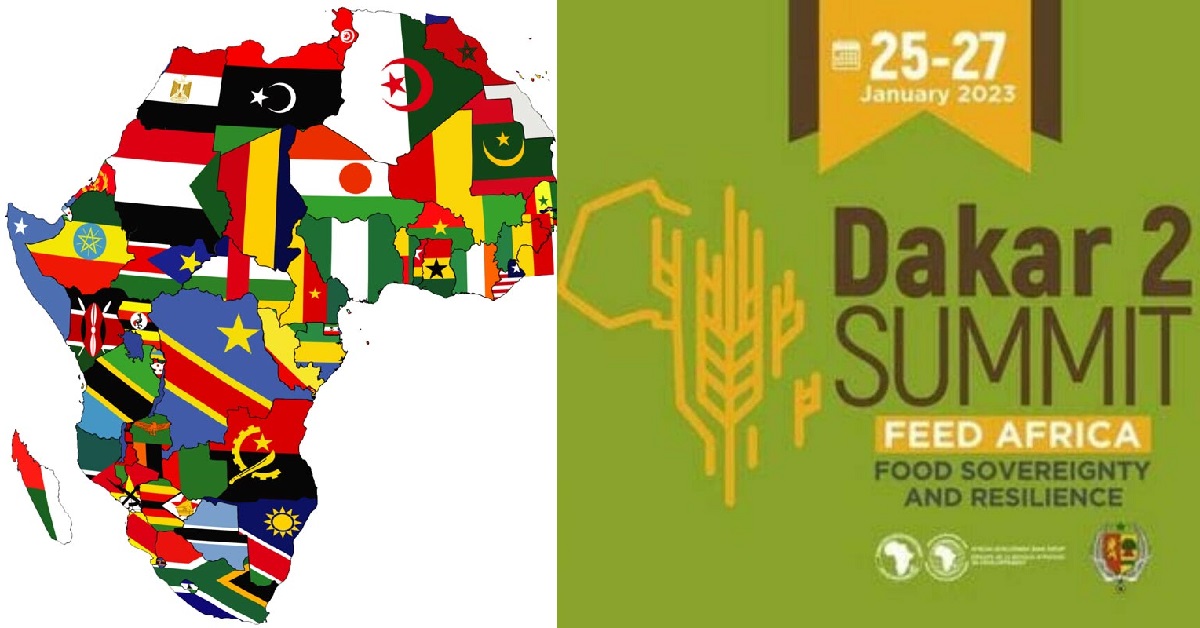Sierra Leone is one of the countries that will be participating in the three-day Summit in Dakar, Senegal from January 25-27, 2023. A summit that is set to unleash Africa’s food production potential. Heads of State in Africa will convene meetings to mobilize and align government resources, development partners and private sector financing to enhance a better and sustainable food production.
The Summit which will be hosted by the Senegalese President, H.E Macky Sall, and the Chairperson of the African Union, and co-hosted by the African Development Bank Group for which Sierra Leone will fully participate will seek to bring together Governments, Private Sector, Multilateral Organizations, NGOs and scientists to meet the escalating challenge of food security in Africa and map out strategic plans of mitigating respectively.
Referencing the main focus of the summit, Countries will share successful experiences on food and agriculture over the years and successful platforms to scale up support for agriculture as well as the double agricultural productivity with state-of-the-art climate-adapted crop, livestock and aquaculture technology and advisory services and support research and development for a pipeline of climate resilient agricultural technologies.
The Private sector actors will also commit to the development of critical value chains while Central Bank Governors and Ministers of Finance will commit to development of financing arrangements to implement Food and Agriculture Delivery Compacts, working with Ministers of Agriculture, as well as private sector players, including commercial banks and financial institutions respectively.
The commitment structure will be based on high-level political grounds in relation to total production, markets and trade to deliver Food and Agriculture Delivery Compacts for selected countries. It will also mobilize and regulate government resources, development partners and private sector financing around the Food and Agriculture Delivery Compacts to achieve food security as well as its sustainability in each country.
The outcome of the summit will let Africa countries stand to gain, and the world also stands to gain from such a concerted effort and it will further diversify food supply sources for the world, looking at the effects of the war in Ukraine and its systemic effects globally, and to secure food supplies for Africa, it is now critical to support efforts to unleash the agricultural potential of Africa, for sustainable food production for which there will be own sources production for the daily progress of these countries.
The end expectation of the summit is clinched on the commitments which will be made by Heads of States for food and Agriculture Delivery Compacts, Presidential Councils for Food and Agriculture Delivery Compacts and financing frameworks for delivering Country Food and Agriculture Delivery Compacts to achieve zero hunger within the shortest possible time.
Africa has the potential to feed itself and contributing to feeding the world respectively. Although there is approximately 65% of the remaining productive land to feed 9 billion people in the world by 2050, the continent imports over 100 million metric tons of food at the cost of $75 billion annually.
It is believed that the Sector investments all along the food value chain can help turn Africa into a breadbasket for the world. Achieving zero hunger in Africa will require between $28.5 billion and $36.6 billion annually. With the removal of barriers to agricultural development aided by new investments, it is estimated that Africa’s agricultural output could increase from $280 billion per year to $1 trillion by 2030.




 Post a comment
Post a comment









